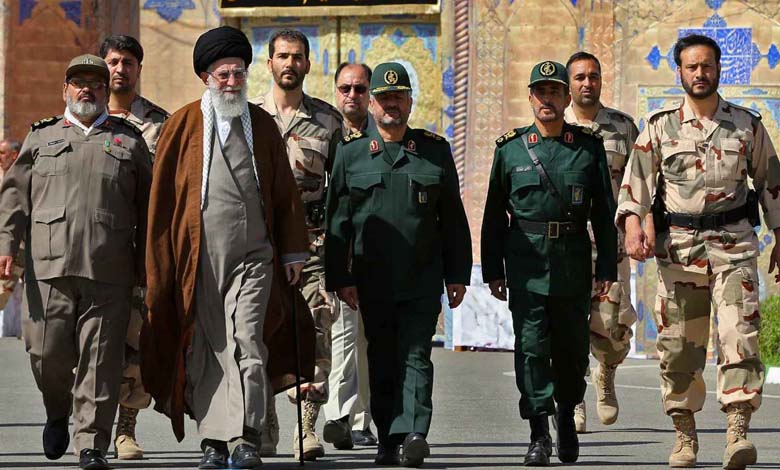Iran Reveals Nuclear Target Bank Inside Israel

Iran’s announcement that it possesses classified documents related to Israeli nuclear sites marks a calculated escalation intended to strengthen its negotiating position and deter any sudden military action from Israel.
-
No Ceasefire in Gaza until De-escalation between Iran and Israel
-
Troubles and Crises: International Economy Affected by Iran and Israel Events
On Monday, Iran declared that it is in possession of secret documents concerning Israeli nuclear facilities and projects. These documents would allow Iran to target undisclosed nuclear sites and strategic economic and military infrastructure in the event of a potential attack on Iranian nuclear facilities.
This statement, issued by Iran’s Supreme National Security Council, claims that Iranian intelligence has obtained a significant cache of classified data, including thousands of documents related to Israel’s nuclear program.
-
In Iran’s Eid Sermon: The U.S. and Israel Present with Warnings
-
“Surprise” in Israeli Attack on Iran: Advance Warning of Date and Targets?
This revelation comes amid growing tensions between Tehran and Tel Aviv, with Iran’s nuclear file being a key point of regional and international contention. By revealing its access to sensitive material related to Israel’s nuclear program, Iran seeks to send a clear message of deterrence: it possesses both the intelligence and military capabilities to carry out an immediate and painful retaliation if its nuclear sites are attacked.
This also serves as a pre-emptive warning to Israel, which in recent months has escalated its threats of military strikes on Iran’s nuclear infrastructure, citing Tehran’s ongoing uranium enrichment at levels nearing military grade.
-
Leaks Reveal Israeli Preparations to Strike Iran and U.S. Concerns
-
Details of Iran’s “Recruitment” of an Israeli and His Girlfriend to Carry Out an “Assassination” Operation
Meanwhile, these declarations coincide with intense diplomatic efforts to revive nuclear negotiations between Iran and Western powers. However, Tehran remains adamant in its refusal to accept any condition requiring a halt to enrichment, viewing it as a non-negotiable sovereign right — thereby further complicating the path to a potential settlement.
Iran’s disclosure of the documents appears to be a strategic move aimed at reinforcing its bargaining position and deterring any pre-emptive Israeli action. Israel, for its part, has openly signaled its willingness to launch unilateral operations against what it calls the “Iranian nuclear threat.”
-
In Case of an Israeli Attack: Source Discusses Iran’s Plan and Target Bank
-
Iranian Missiles on Israel: Launch and Interception Costs
The Iranian statement described the intelligence operation as a “major success,” stating that the secret documents obtained would enable Tehran to respond immediately to any Israeli aggression in a manner fully proportional to the nature of the attack.
It clarified that, if attacked, Iran would strike Israel’s secret nuclear installations as well as its economic and military infrastructure.
-
Can Hezbollah stand up to Israel? Iranian President expresses doubts
-
Iran’s Secret Document Ignites a Dispute within the Israeli Military and Netanyahu’s Office
On June 7, Iranian state television had already reported that security agencies had seized “thousands of secret documents” belonging to Israeli intelligence, including sensitive information about its nuclear facilities. The operation reportedly took several months and the documents are still under analysis.
Iranian Intelligence Minister Esmail Khatib stated that the documents include sensitive data on Israel’s nuclear program and its connections with the United States, European countries, and other international actors.
-
Will Iran Abandon Its Revenge Against Israel in Exchange for a Gaza Ceasefire?
-
Intense Cyber War Between Israel and Iran
Similarly, Iranian Foreign Ministry spokesperson Esmail Baghaei noted during a press conference in Tehran that some of the documents reveal support provided by European countries to Israel’s nuclear program.
In a related development, IAEA Director General Rafael Grossi confirmed that there is concrete evidence that some of the agency’s confidential documents have fallen into Iranian hands.
While Israel threatens to strike Iran’s nuclear sites, the U.S. continues to call for renewed negotiations. Meanwhile, media sources have reported that the Trump administration had halted coordination with Israel on this issue.












